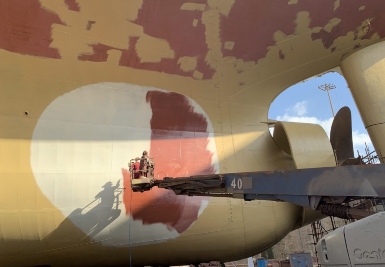
Classification society ABS and shipbuilder Samsung Heavy Industries (SHI) have signed a new joint development program (JDP) agreement to develop 3D model based surveys.
The signing of the new agreement follows development of a paperless 3D model-based design and review process that completed a JDP signed at Gastech in Houston, Texas, in September 2019.
The project now moves into the next phase now with pilot 3D model based surveys of an LNG carrier.
“We are excited to be extending this technology to Class survey to further demonstrate reduction of paper documentation is feasible,” said Continue reading “ABS and Samsung Heavy progress with 3D model based surveys”










